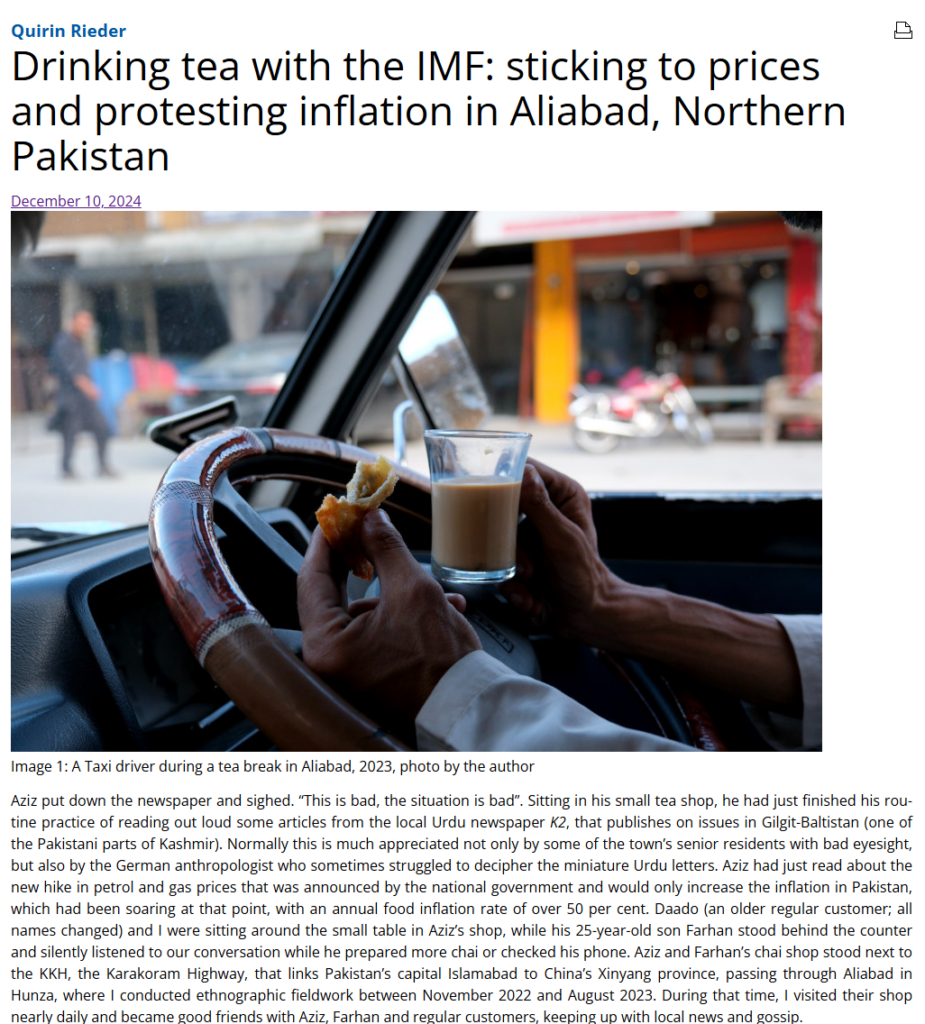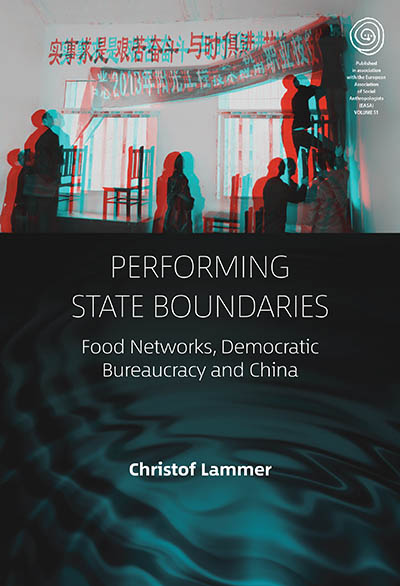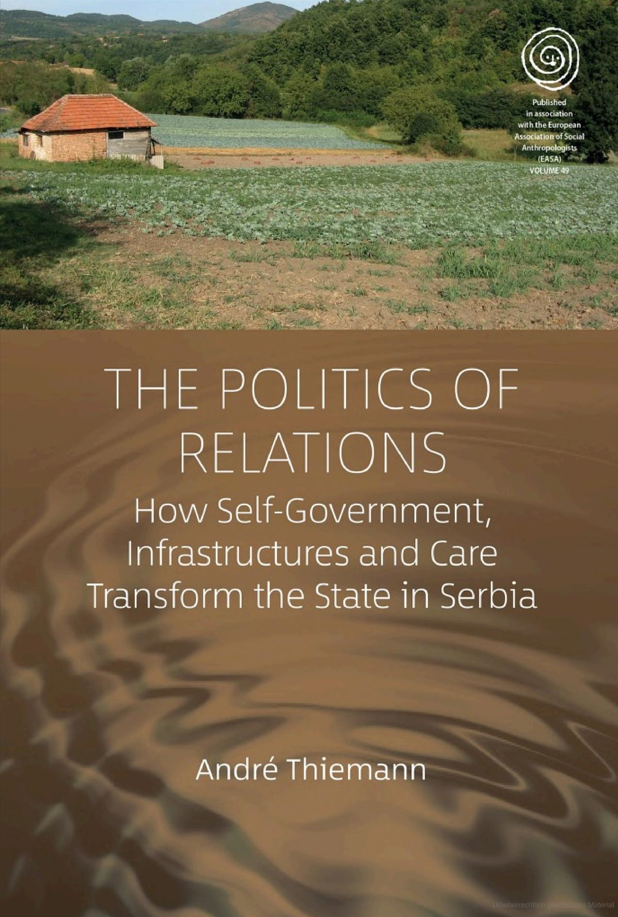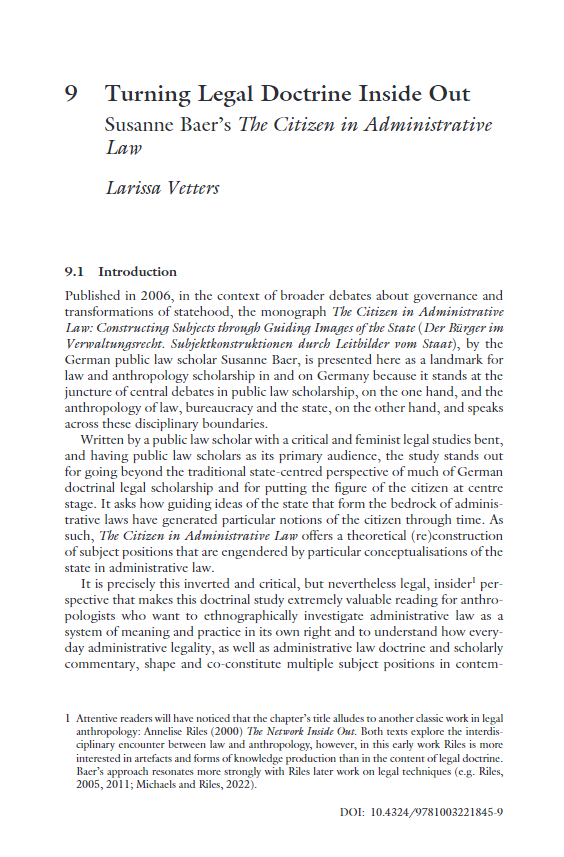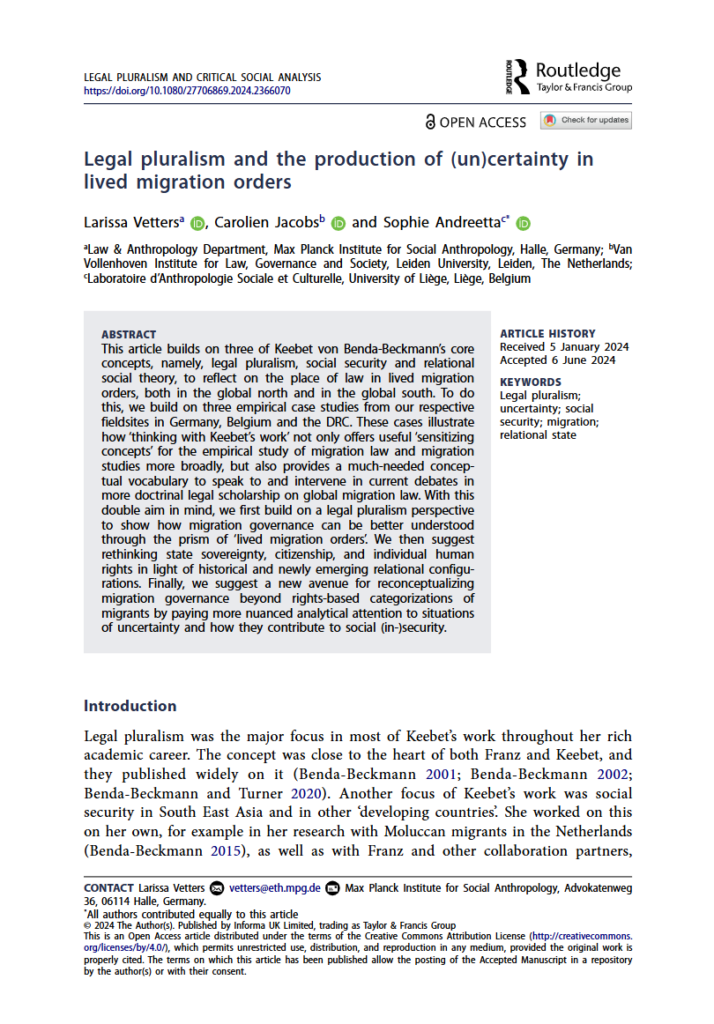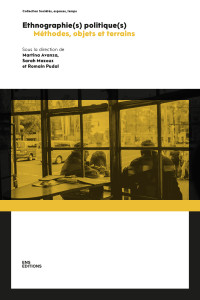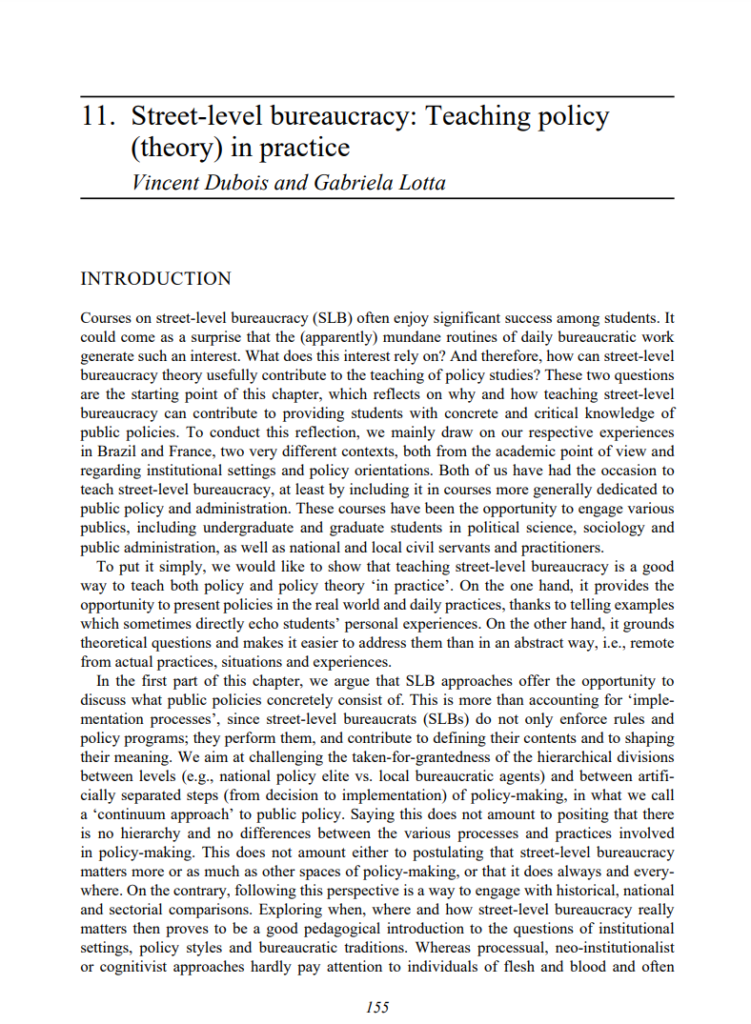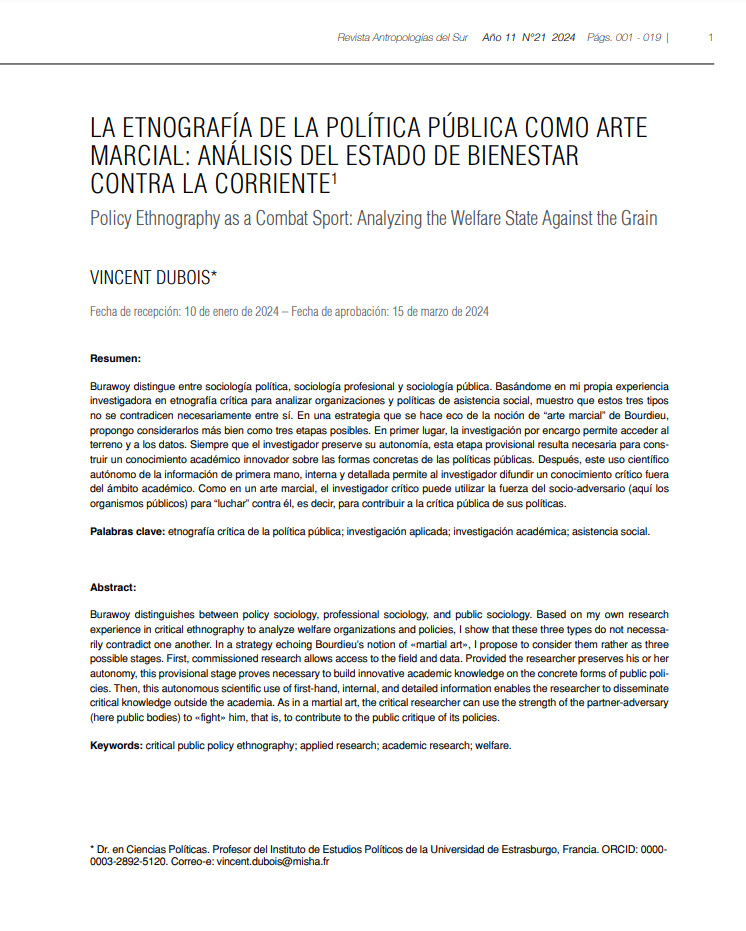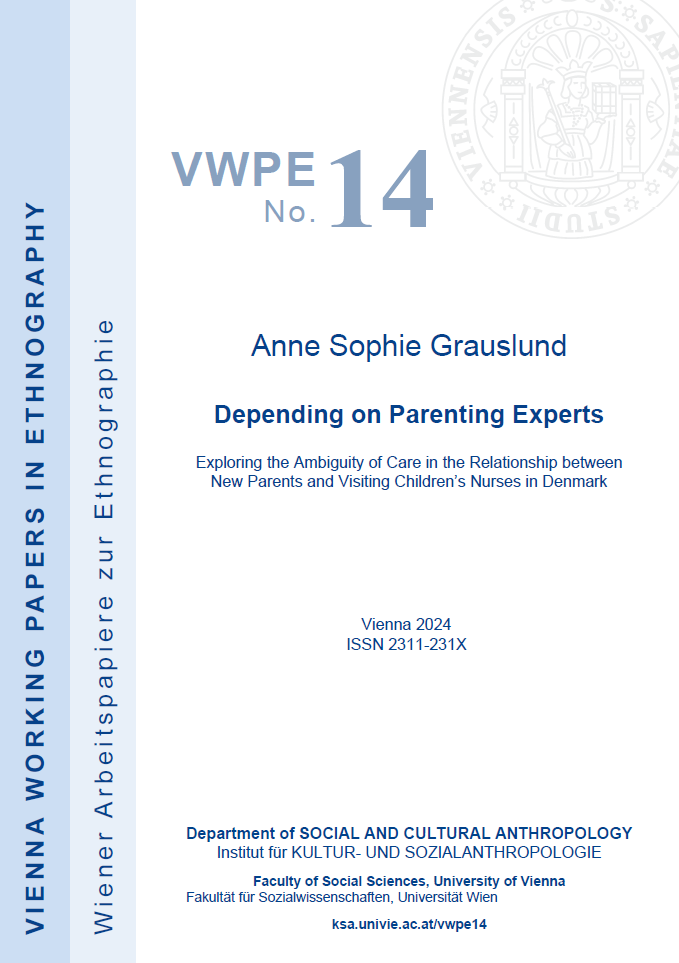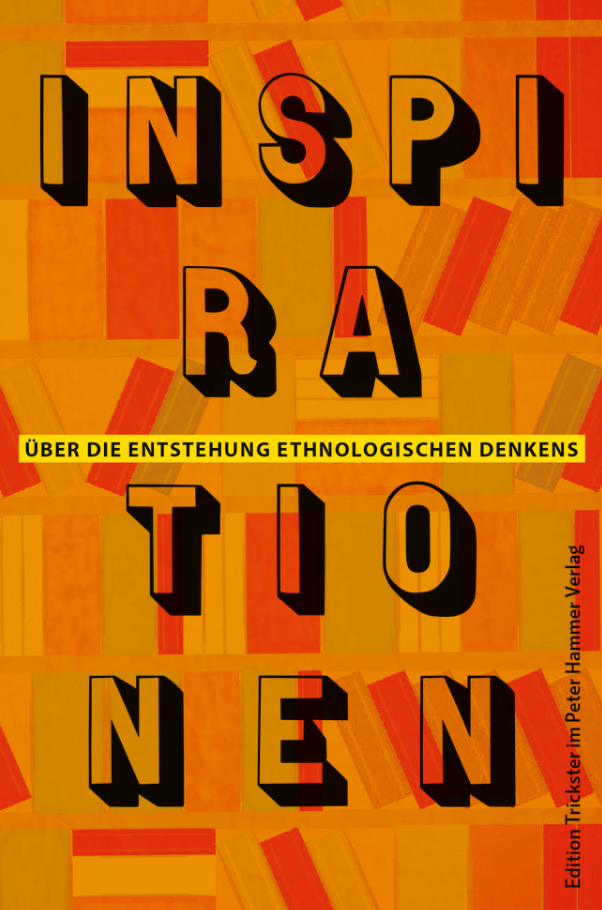Quirin Rieder: Drinking Tea with the IMF. Sticking to Prices and Protesting Inflation in Aliabad, Northern Pakistan
Focaal Blog, 10 December 2024.
This blog post by Quirin Rieder looks at everyday negotiations of the price of a cup of tea and bigger protests against cuts in subsidies as instances of an (partial) un-doing of economic and political marginalisation. It is published as part of a bigger feature on the Focaal Blog on the Social Life of Inflation that emerged out of an EASA 2024 panel.
Christof Lammer: Performing State Boundaries. Food Networks, Democratic Bureaucracy and China
= EASA Series vol. 51, New York/Oxford: Berghahn.
Polarizing images of authoritarian, socialist or culturalist otherness compromise analyses of the Chinese state. Still, such images produce effects beyond academia when they inform performances of the boundaries between state and non-state. This book shows how performative boundary work leads to contrasting judgements that decide about support and access to resources. In an ecological village in Sichuan, citizen participation in food networks and bureaucracy signaled Western liberalism, Maoism or traditional rural culture for different audiences. Attention to the multiplicity of performed state boundaries helps China studies and political anthropology to understand such diverging classifications – and how they sometimes co-exist without causing tensions.
André Thiemann: The Politics of Relations. How Self-Government, Infrastructures, and Care Transform the State in Serbia
= EASA Series vol. 49, New York/Oxford: Berghahn.
Rethinking the contributions of the Manchester School of Social Anthropology for political ethnography, the Politics of Relations elaborates its relational approach to the state along four interlaced axes of research – embeddedness, boundary work, modalities and strategic selectivity – that enable thick comparisons across spatio-temporal scales of power.
In Serbia local experiences of self-government, infrastructure and care motivate its citizens to “become the state” while cursing it heartily. While both officials and citizens strive for a state that enables a “normal life,” they navigate the increasingly illiberal politics enacted by national parties and which are tolerated by trans-national donors.
Larissa Vetters: Turning Legal Doctrine Inside Out. Susanne Baer’s The Citizen in Administrative Law
In: Alice Margaria and Larissa Vetters (eds.). Leading works in law and anthropology. Analysing Leading Works in Law. Routledge, 167–191.
Published in 2006, in the context of broader debates about governance and transformations of statehood, the monograph The Citizen in Administrative Law: Constructing Subjects through Guiding Images of the State (Der Bürger im Verwaltungsrecht. Subjektkonstruktionen durch Leitbilder vom Staat), by the German public law scholar Susanne Baer, is presented here as a landmark for law and anthropology scholarship in and on Germany because it stands at the juncture of central debates in public law scholarship, on the one hand, and the anthropology of law, bureaucracy and the state, on the other hand, and speaks across these disciplinary boundaries.
Larissa Vetters, Carolien Jacobs, and Sophie Andreetta 2024: Legal pluralism and the production of (un)certainty in lived migration orders
Legal Pluralism and Critical Social Analysis, 1–26.
As part of a special issue in honor of Keebet von Benda-Beckmann, this article builds on three of her core concepts, namely, legal pluralism, social security and relational social theory, to reflect on the place of law in lived migration orders, both in the global north and in the global south. We build on three empirical case studies from our respective fieldsites in Germany, Belgium and the DRC to illustrate how ‘thinking with Keebet’s work’ not only offers useful ‘sensitizing concepts’ for the empirical study of migration law and migration studies more broadly, but also provides a much-needed conceptual vocabulary to speak to and intervene in current debates in more doctrinal legal scholarship on global migration law. Applying a legal pluralism perspective, we suggest to understand migration governance through the prism of ‘lived migration orders’, to rethink state sovereignty, citizenship, and individual human rights in light of historical and newly emerging relational configurations, and to pay more nuanced analytical attention to situations of uncertainty and how they contribute to social (in-)security.
Vincent Dubois: L’ethnographe et l’action publique. Éléments pour un usage critique de l’enquête ethnographique
In: Martina Avanza, Sarah Mazouz, and Romain Pudal (eds.) 2024: Ethnographie politique, Presses de l’ENS, 241–266
The chapter “L’ethnographe et l’action publique. Éléments pour un usage critique de l’enquête ethnographique” by Vincent Dubois reflects on the various types of relationship between anthropology/ethnographic approaches and public policy, and advocates for a critical use of these approaches.
Vincent Dubois & Gabriela Lotta: Street-level bureaucracy. Teaching policy (theory) in practice
In: Handbook of Teaching Public Policy, edited by Philippe Zittoun and Emily St. Denny. E. Elgar, 155-166.
This chapter reflects on why and how teaching street-level bureaucracy can contribute to providing students with concrete and critical knowledge of public policies. We intend to show that teaching street-level bureaucracy is a good way to teach both policy and policy theory ‘in practice’. On the one hand, it provides the opportunity to present policies in the real world and daily practices, thanks to telling examples which sometimes directly echo students’ personal experiences. On the other hand, it grounds theoretical and methodological questions and makes it easier to address them than in an abstract way, i.e., remote from actual practices, situations and experiences. To do so, we mainly draw on our respective experiences in two very different context, both from the academic point of view and regarding institutional settings and policy orientations: Brazil and France.
Vincent Dubois: La etnografía de la política pública como arte marcialanálisis del estado de bienestar contra la corriente
Revista Antropologías del Sur 11 (21): 1-19.
Burawoy distinguishes between policy sociology, professional sociology, and public sociology. Based on my own research experience in critical ethnography to analyze welfare organizations and policies, I show that these three types do not necessarily contradict one another. In a strategy echoing Bourdieu’s notion of “martial art”, I propose to consider them rather as three possible stages. First, commissioned research allows access to the field and data. Provided the researcher preserves his or her autonomy, this provisional stage proves necessary to build innovative academic knowledge on the concrete forms of public policies. Then, this autonomous scientific use of first-hand, internal, and detailed information enables the researcher to disseminate critical knowledge outside the academia. As in a martial art, the critical researcher can use the strength of the partner-adversary (here public bodies) to “fight” him, that is, to contribute to the public critique of its policies.
Anne Sophie Grauslund: Depending on Parenting Experts. Exploring the Ambiguity of Care in the Relationships between New Parents and Visiting Children’s Nurses in Denmark.
= Vienna Working Papers in Ethnography no. 14
In recent years, parenting has again become a prominent topic in public debate in the Global North. With ever more studies stressing the importance of the early years to lifelong outcomes and ‘success’, parenthood has come under scrutiny by public and expert institutions, and the position that parents should rely on expert advice has become prevalent. Based on ethnographic fieldwork among visiting children’s nurses (sundhedsplejersker) and new parents in a Danish municipality, this paper explores the dynamics between these nurses and parents and how the former reinforce the discourse that parenting must be learned from experts. In Denmark, all new parents are offered visits by a children’s nurse who monitors the baby’s development and helps guide their care for it. Examining the tensions in the nurses’ work between their wish to empower new parents, and how they reinforce the parents’ dependency on their help and validation, the paper explores how each group (re)produces the other as ‘needed’ experts and ‘needing’ experts.
Tatjana Thelen: Der Wert der Ethnographie, noch immer: Über Anna Lowenhaupt Tsing
In: Inspirationen: Über die Entstehung ethnologischen Denkens, edited by Lisa Burger, Tim Burger and David Sumerauer. Edition Trickster (Peter Hammer Verlag), 90-100.
“The Value of Ethnography, Still: About Anna Lowenhaupt Tsing” (in German)
In this volume, 22 ethnologists describe in very personal texts how certain films, ethnographies, graphic novels, an academic essay or a poem triggered an “aha moment” that had a formative effect on their ethnological thinking or even changed their life path and to which they have returned repeatedly ever since. Tatjana chose Anna L. Tsing’s ethnography In the Realm of the Diamond Queen (1993), which made a lasting impression on her.
